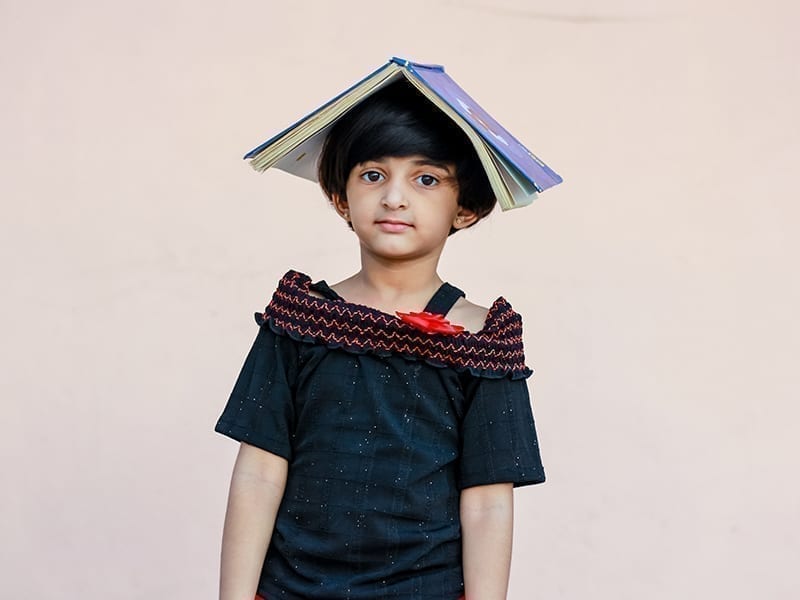Attention Deficit Hyperactivity Disorder (ADHD) is a chronic condition that affects millions of children and often continues into adulthood. ADHD or Attention deficit disorder (ADD) is a neurological disorder that causes a range of behaviour problems such as difficulty attending to instruction, focusing on schoolwork, keeping up with assignments, following instructions, completing tasks and social interaction. It is usually first diagnosed in childhood and often lasts into adulthood. This can be quite a challenge for parents searching for ways to make their child’s life healthy and happy while dealing with ADHD.
Child, Adolescent and Young Adult Psychologist Tripti Choudhary Vaid shares advice and answers questions about positively parenting a child with ADHD.
1. What is ADHD & how does it affect kids?

‘ADHD’ is Attention Deficit Hyperactivity Disorder, which is a neurodevelopmental disorder. Children with ADHD may have trouble paying attention, may be overly active or have trouble controlling impulsive behaviour (may act without thinking about what the result will be).
2. At what age are ADHD symptoms most likely to appear & how do you know your child may be susceptible to it?
The causes and risk factors for ADHD are unknown, but current research shows that genetics plays an important role. Recent studies of twins link genes with ADHD. Other factors that are being researched are brain injury, premature birth, low birth weight, or alcohol and tobacco use during pregnancy.
Research does NOT support the following reasons as causes for ADHD: Eating too much sugar, watching too much television, parenting, or social and environmental factors such as poverty or family chaos. These factors may make the symptoms worse for some individuals, but cannot cause it.
3. What are the common symptoms of ADHD in children?
It is normal for children to have trouble focusing or behaving at one point to another. However, children with ADHD don’t just grow out of this behaviour. The symptoms can continue, they can be severe and can cause impaired functionality at school or at home, or with the peer group.
The common symptoms of ADHD are to show a persistent pattern of inattention and/or hyperactivity-impulsivity that interferes with functioning or development.
1. Signs Of Inattention
- Has trouble holding attention on tasks or play activities
- Fails to give close attention to details or makes careless mistakes
- Often does not seem to listen when spoken to directly
- Does not follow through on instructions and fails to finish schoolwork, chores or other duties
- Often has trouble organising task and activities
- Often avoids, dislikes or is reluctant to do tasks that require mental effort over a long period of time
- Often loses things necessary for tasks and activities
- Easily distracted
- Often forgetful
2. Signs of Hyperactivity & Impulsivity
- Fidgety
- Leaves the seat in a situation when remaining seated is expected
- Unable to play or take part in leisure activities quietly
- Often runs about or climbs in a situation where it is not appropriate
- Is often “on the go” acting as if “driven by a motor”
Based on the types of symptoms, ADHD can occur in three types:
- Combined Presentation
- Predominantly Inattentive Presentation
- Predominantly Hyperactive-Impulsive Presentation
It is very important that the symptoms should be diagnosed by a professional for example, a psychologist or psychiatrist.
4. What are the early signs your child may have ADHD?
Early signs of a child with ADHD might be:
- Daydreaming a lot
- Forgetting or losing things a lot
- Squirming or fidgety
- Talking too much
- Making careless mistakes or take unnecessary risks
- Having a hard time resisting temptation
- Having trouble taking turns
- Having difficulty getting along with others
- Unable to finish classwork
5. How soon should you take your child to the doctor if he/she exhibits symptoms? Which healthcare professional should you visit?
If one is concerned about whether a child may have ADHD, the first person they should talk to is the paediatrician to find out about the symptoms. Once the pediatrician observes the child, he himself may refer the family to a psychologist/psychiatrist. The diagnosis can ONLY be made by a mental health professional like a psychologist or a psychiatrist.
6. How can you educate yourself about ADHD if your child is diagnosed?
The first source of information will be the mental health professional like a psychologist or psychiatrist. They will provide you with the correct information. One can also join parent support groups for ADHD to get more information about ADHD.
7. What are some ways to deal with ADHD as parents & family members?
ADHD is misunderstood. Children who have ADHD are misunderstood. The biggest way in which parents and family members can support them is by understanding what the concern really is and how it manifests in their child. Look for things that the child is ‘able’ to do rather than focusing on what they can’t do. A positive, caring and empathetic attitude will help these children bloom beautifully.
8. How can you educate relatives, friends, & strangers about ADHD and tips they need to adhere to when engaging with your child?
ADHD needn’t be a bad thing and we don’t need to look at it like that. There are many accomplished people who have ADHD. The important part is to be able to channelise ADHD in an adaptable way. Believe in your child! Teach others to do so as well. Kids with ADHD need a lot of love, care and understanding. Remember that ADHD is a part of your child. It is not THE thing that defines your child.

